#Church Revitalization
Explore tagged Tumblr posts
Link
by Geoff Chang | When Spurgeon first arrived at the New Park Street Chapel in the winter of 1853, the church was dying. But in the coming years, through the preaching of the Word, God would do a remarkable work. With the thousands being drawn to Spurgeon’s ministry, church membership would grow dramatically, elders would be called, and the church would become an engine for gospel ministry...
#The Spurgeon Library#Geoff Chang#On the Borders of the Infernal Lake#Spurgeon on Church Revitalization#spurgeon.org
3 notes
·
View notes
Text
Small Church Survival and Growth Strategies
Small churches play vital roles in their communities by fostering close connections among members. However, they face significant challenges in today’s changing landscape.onnected. But, they face challenges as trends change. Leaders who focus on growth keep their members involved. They update outreach, reaffirm leadership, and encourage participation. This way, they make a lasting impact. Key…
0 notes
Text
Evaluating Genuine Authenticity
Chapter excerpt 2, from my new book, Christianity in the Mirror Rev. Ed Schneider, MPTh Do you know what is the most challenging thing for an audience to evaluate correctly? It is the genuine authenticity of both the person and the message being shared. Here’s why. 1. Determining another’s authenticity does NOT start with the person speaking but with those listening. The reality is that…
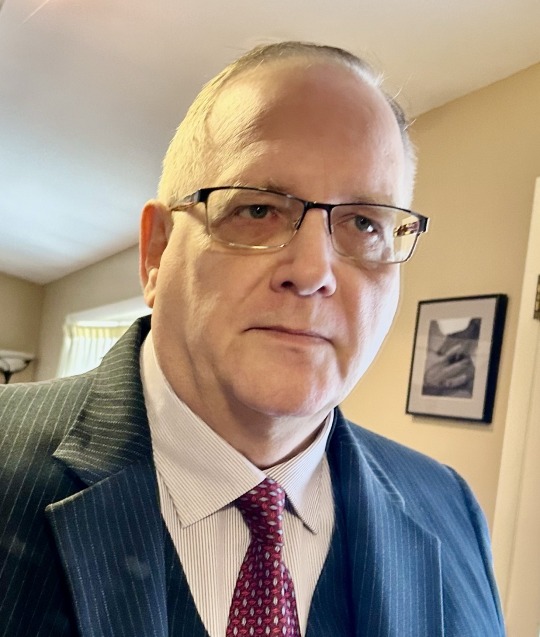
View On WordPress
#Authentic#Bible#Christian Education#Christianity#Church Growth#Discipleship#Essential Truths#Evangelism#Genuine#God#Jesus#Leadership#Rev. Ed Schneider#Revitalization#Transformation
0 notes
Text
So a thought has been kicking around my head for a bit...what if Helio knew exactly what he was signing up for by making Kristen his chosen one?
It has always struck me as odd that when describing Doreen in Helioic heaven, Brennan mentioned her flirting with men and women. It also strikes me as odd that Kristen never got any pushback from Helio about turning her back on him. Even if he was similarly 'out of the picture' like sol was while Arthur was wrecking havoc, Kristen's powers should have faded when she fully committed to not worshipping him. You need to worship a god to get powers, and this is emphasized heavily in the latest episode. Kristen worshipping the vague idea of religion but Definitely Not Helio just doesn't cut it. Sure, taking away a PCs powers wasn't really in the cards in season one, but Brennan works very well and very caringly with what he has to establish as canon.
Kristen was looking for a reason to drop Helio from the get-go. His frat boy appearance and non-answer to a nearly impossible question didn't truly matter at the core of her feelings. She wanted an out from the prison she was trapped in with the Helioic faith, even if she didn't realize it fully. She had tension with her mom and her ideals from the scene one! She wanted to connect with people the church actively shunned. Helio was never the true problem.
Now, gods are shaped by their worshippers. So on some level Helio is shaped by people with shitty ideals. But there's still a foothold of good, especially if there are out and proud gays in heaven. Especially if Kristen Applebees of all people is the chosen one.
When you have worshippers misinterpreting your whole deal, going with Sol's shitty messaging and transferring it onto you and using it for bad things, what can you do as a god? Because you ARE what they say you are. So how can you fight back?
Well. You make your chosen one someone that embodies your true heart. Someone that can actually turn the tides of your worship.
There is an emphasis on tracker reinventing and revitalizing her religion. Changing it for the better. Taking the old and not tossing it out, but making it better.
Isn't that what Kristen struggles with the most? That's what she needs to learn how to do.
Tracker also established that she can worship multiple gods when she helped with Yes?. Kristen doesn't need to settle for one even if she (fingers crossed) brings Kassandra back.
Because the season opened with the slow apocalypse of endless night. Endless daytime would end similarly. There has to be a balance. They are two sides of the same coin. Day and night. The surety of the sun and the doubt of the shadows.
Kristen wants both. And she can fucking have it if she decides to.
Ally once said they appreciate that the enemy is always the church. Organized religion. Kristen is perfect for disorganized religion though. Chill frat boy vibes and anxious doubts and the ultimate message of 'just do your best'.
I think religious trauma is a compelling, close to the heart topic for a lot of people. And some turn away from religion entirely and wash their hands of it. But some people don't. Kristen is a cleric. She can't. She wants a god, she wants answers, and she just can't find them in the established community she was raised in. That doesn't mean the core of her religion was wrong. The church was. So you take the religion and you harness it in a way that means something to you.
Maybe Kristen being desperate enough to invite Helio back into her life is what this has all been leading to.
She can remake a god. She's done it before. Because Kassandra was good at the core. Maybe Helio can be too.
#dimension 20#kristen applebees#junior year#fantasy high#fantasy high junior year#i come from a religious upbringing and am very much not religious as a result#but dang people from a traumatic religious upbringing that maintain belief in the god but not the toxic teachings are very cool and valid
518 notes
·
View notes
Text
Cantor Jennifer Bern-Vogel was used to hearing her mother tell the story.
On the evening of Nov. 9, 1938, her mother, then Marianne Katzenstein, who was 16 at the time, was in her family’s synagogue in Bielefeld, Germany, practicing the organ. She finished up, used a key to lock the building and returned home. Later that night, the synagogue was burned to the ground by the Nazis in the Kristallnacht pogrom.
Only two items survived the fire: a Torah scroll and Katzenstein’s key.
“I just remember her talking about it, her voice would change and she was just kind of slower and softer and very nostalgic when she talked about the whole story,” Bern-Vogel, 67, said in an interview. “Whenever she told the story and then held up the key, people always — and I experienced it myself — there was always this kind of gasp.”
Bern-Vogel, who has been the cantor at Congregation Emanu El in Redlands, Calif., since 2009, said the story of the key was “legendary” in her family.
And on Saturday, 86 years after Kristallnacht, the key returned home.
Bern-Vogel spent the past week in Germany, where she had lived for more than a decade when she was younger, reconnecting with friends, family and the Jewish community of Bielefeld, where the synagogue was reestablished shortly after the Holocaust. It was her first trip to Bielefeld with her husband and daughter, and her brother and niece, as well as a cousin from Denmark, also flew in for the occasion.
On Friday night, Bern-Vogel and the cantor of the Bielefeld synagogue led Shabbat services together. Bern-Vogel sang a song that was adapted from a poem written by her grandfather, with music composed by a longtime friend from Germany.
And following Havdalah on Saturday, the town held a ceremony that began at the site of the destroyed synagogue before moving to City Hall, where the official hand-off was made. The key was added to the collection of the town’s history museum and will be on display at the current synagogue building.
According to Irith Michelsohn, the president of the town’s Jewish community and of Germany’s Progressive Jewish movement, Bielefeld’s Jewish community has 450 members. The synagogue the community uses now was renovated from an old Protestant church and was inaugurated in 2008.
Prior to the Holocaust, Bielefeld was home to almost 1,000 Jews, Michelsohn said. The community has been revitalized since Michelsohn took the helm on Jan. 1, 2000, at which point she said there were only 35 members.
Michelsohn said the key’s return is immensely meaningful to the community.
“I was so excited, because we only have one Torah scroll, and now the key, that’s all we have from our old synagogue,” Michelsohn said. “And now the key is back. That’s so great, you can’t imagine.”
Michelsohn said the key is especially important as a vehicle to educate the current community about its past. She explained that like many German Jewish communities, Bielefeld’s Jews are almost all originally from the former Soviet Union.
“You don’t have many people who are originally from Germany,” she said. “Some of them converted to Judaism, some immigrated from Israel or other countries or are working in Bielefeld with a university, but most of the members in all of our 120 Jewish communities in Germany are from the former Soviet Union.”
The key, Michelsohn said, represents an opportunity to “teach them something about history, about the past, what we lost.”
It also returns a physical reminder of the old synagogue building, which had been built in 1905 and was commissioned by the Katzenstein family. Bern-Vogel’s maternal grandfather had been the head of the Jewish community, and helped hundreds of families escape Germany.
“It symbolizes a connection to the old and very, very nice building which we had,” Michelsohn said, adding that the destroyed synagogue was “such a marvelous building.”
Like the key she kept, the remarkable story of Bern-Vogel’s mother did not end in 1938. The following year, she and her younger sister escaped to England on the Kindertransport. Years later, she was at a Shabbat dinner in Israel when she met Julian Bernstein (later shortened to Bern), Bern-Vogel’s father, who also survived the Holocaust.
Julian was one of six children from a Lithuanian family, but only he and one brother survived the Holocaust. That brother, Leon Bernstein, and Bern-Vogel’s mother were both working for the World Jewish Congress; Leon hosted the Shabbat dinner where Julian and Marianne met.
The two were engaged within a week, and eventually settled in Iowa, where Bern-Vogel and her brother were raised.
In the later years of her mother’s life, Bern-Vogel said there had been efforts to bring the key to the United States Holocaust Memorial Museum in Washington, D.C. But a contact her mother had at the museum passed away, and in 2017, so did she, at 94 years old.
“It just held a very deep connection,” Bern-Vogel said, referring to the key, a copy of which she still has. “I don’t think I thought about, when we were growing up, that the key would be anywhere else but with us. It kind of belonged to us.”
But as her mother aged, Bern-Vogel said her family wanted to determine where the key should go to be best taken care of and hold the most meaning. After a couple recent trips to Germany, Bern-Vogel said the answer crystallized.
“It just became clearer over the last couple of years, and especially after I went there last summer to meet with them at the synagogue and the museum, that it would really mean the most for everyone and future generations for it to be there,” she said.
Bern-Vogel said that even though her mother had a fraught relationship with Germany because of how her family’s time there ended, Bielefeld will always be their home. And she knows her mother would appreciate knowing that the key has made it back.
“I think that she would be incredibly moved by the reception that the key is going to have, and the people that are involved in the city,” Bern-Vogel said. “I think she would be very honored and happy, and I think grateful.”
94 notes
·
View notes
Text
Time period post: Tough decisions (being poor in the 1960s)

It pains me when Greasers, especially in relation to the outsiders get boiled down to Jackets, hair grease and rock n’ roll. I spoke of it here and a few of my other posts of greasers as a subculture, but it was often times a label put on “Poor Bully” social clubs/friend groups/gangs. Who sometimes where the expected uniforms other times don’t.
Class is something that’s essential to understanding the context of the Curtis gang and The Outsiders. Sometimes, I think that how poor they are tends to be forgotten or people are unfamiliar with things to consider or incorporate so I hope this can help. It’s not ‘we can’t go on vacation :(.’ It’s ‘sometimes you have to chose between food and heat’.
I’m going to try and do my best to share some base elements that’d be helpful for fics and fanart. This is not a historical rundown on treatment, programs or social movements of the time but the more practical, day to day instead of broader background. Also not saying all of these apply.
Lunch meat and stretching-
When it comes to food it’s going to be more canned and processed, baloney as lunch meat instead of turkey. Canned vegetables instead of fresh ones at dinner. White bread over something from a bakery. Cheaper cuts of meat like: rounds, thighs, flank, cube steak, or sometimes not a meat at all if it’s a hard month.
Buying foods on sale (everything really) or from thrift food stores. Around this time SNAP (foodstamps) got a big revitalization so fresher food is more available and there’s help with grocery costs. Other resources are places like Food banks, food pantry’s , soup kitchens, charity’s or churches as a place to get some ingredients or a meal if particularly in need
Seasoning and sauces tend to be heavy, both out of recipes at the time but also if you have a lesser quality ingredient it’s easier to taste better/be better for you. Meals could be fixed too, having fixed menus and a few staple recipes to recycle through can be a real budgeting help and help to mothers/who cooks (this is true in middle class homes too)
I don’t know for sure but I can imagine that some staple recipes that might be shared are hold overs from the Great Depression or war rations, as they aren’t far off in the 60s. Things from necessity can quickly become a staple/nostalgic as well as already being a thrifty recipe.
Repair, reuse and recycle-
Broken and dirty things aren’t just tossed away as easily, if it can be cleaned or fixed in anyway- it will be or kept around until it can be. Clothes are mended— wear shoes till there’s holes and they’re taped just to stay on before getting a new pair.
Repairs, damaged and broken things or parts of the house that need repair can take a long time to get around to if most of the house is working. If you can’t fix yourself but can’t afford a repairman either. Poor economic circumstances can make people get creative and build practical skills, learn to fix, pick parts and Jerry-rig. When fixing or replacing can be a luxury it’s a great skill to learn for yourself.
I’ve talked about it in my car post but there’s also junk yards! It’s not just cars and it’s not always an established spot, sometimes it’s someone’s literal lawn/yard. A place to pick stuff apart for parts to use or sell — it is a good help and spot for community. Mentioned in the movie how the Curtis yard and a few surrounding have the beginnings, old Cars, lumber etc
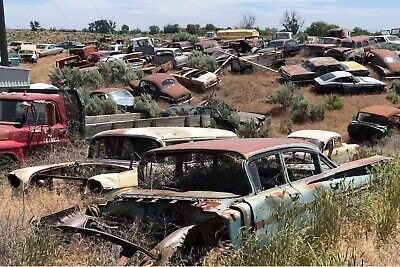
Use things up! You finish shampoo? Put water in it. Stretch it. There’s a tangible appreciation of even mundane products, fully using what you have.
Reuse old containers (like the trope of the sewing kit in the cookies or the butter as Tupperware.) the 1960s had a lot of good solid glass and other material containers that could truly be reused and durable.
Sacrifice-
Sometimes you have to make the rough choices, what gets fixed, what bills get paid, who showers, who eats? What is the priority for this paycheck? It can be hard to save up.
There’s also a variety of social programs, officers and charities to work through. While not always reliable services like employment offices, night school, skill centers etc all exist as additional resources. Increasingly so with the social changes of the 1960s and pressure put on the government to make change.
Pride and community-
First brought up and I’ve explained it better in this post, but there’s a real social safety net and reliance on others. You help your own and also know when to mind your business. Talking at the gas station or bait/hunting shopping or local dive instead of cocktail parties, waving off porches where everyone’s invited.
At the same time it’s an environment where it’s easier for teens to turn to the street, getting rough and gangs. Between boredom, masculinity and sometimes necessity it’s easy to see. Especially when home might be at work a lot or caring that stress/anger home and creating a cycle.
There’s resolve, practical skill, love, resilience too. At the end of the day you go out and shop, you talk with neighbors, you go to school or watch TV like anyone else. what I don’t want to do is paint a desolate victim image— there’s so much more to a person than hard decisions or being poor. That’s part of what the Outsiders is about— how they’re regular guys too but this image put on them can really bring a guy down.
There’s pride too, that doesn’t come from ownership. From paving way, from survival, from managing on your own. Pride for yourself and your community despite negativity.
Greasy girls make do-
When money is scarce you’re not going to have a large budget for non essentials like makeup, hair rollers etc. So you get creative, there’s stories of Dolly pinching her cheeks or making eye liner from burnt matchsticks— girls find a way to pretty themselves. Now I don’t think most on the east side are at that extent but it highlights my point. Honestly i think most of the girls would lift some of their collection, or have it from the pharmacy not the Sears (not so different from today.) they’d also do it far bolder/heavier.
No rollers the size you want? No problem… orange drink cans! Or any empty can, it’s become a “redneck trope” At this point but it’s longstanding, same goes for using a literal clothes iron to straighten hair (both would also be used by middle class girls).
Girls would also be working, helping family if need be too. Important to note this. There’s always been working women, long before Ww2 and don’t ever think otherwise.
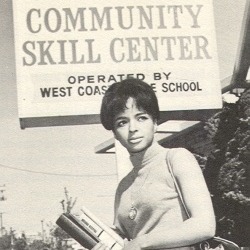
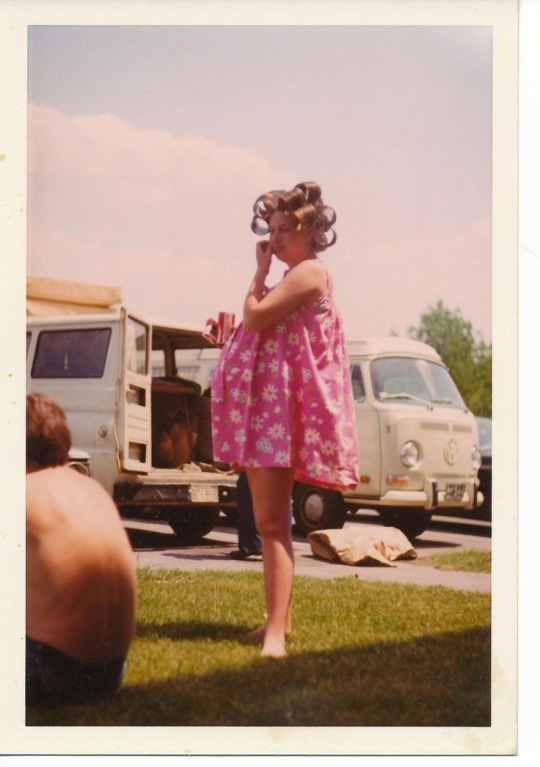
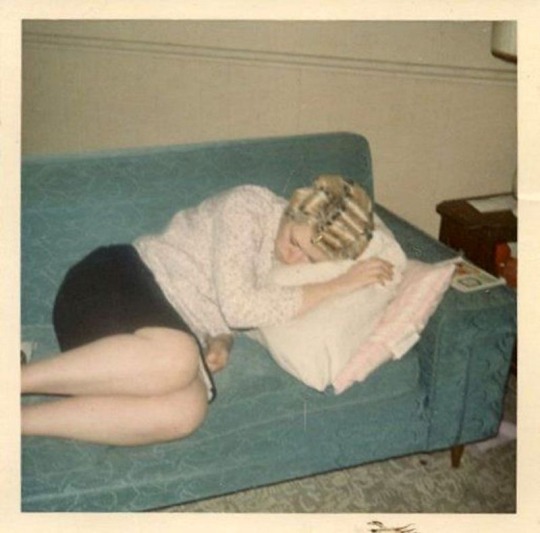
#the outsiders#time period post#time period post : tough decisions#1960s#historical context#writing help#outsiders meta#writing reference
43 notes
·
View notes
Text
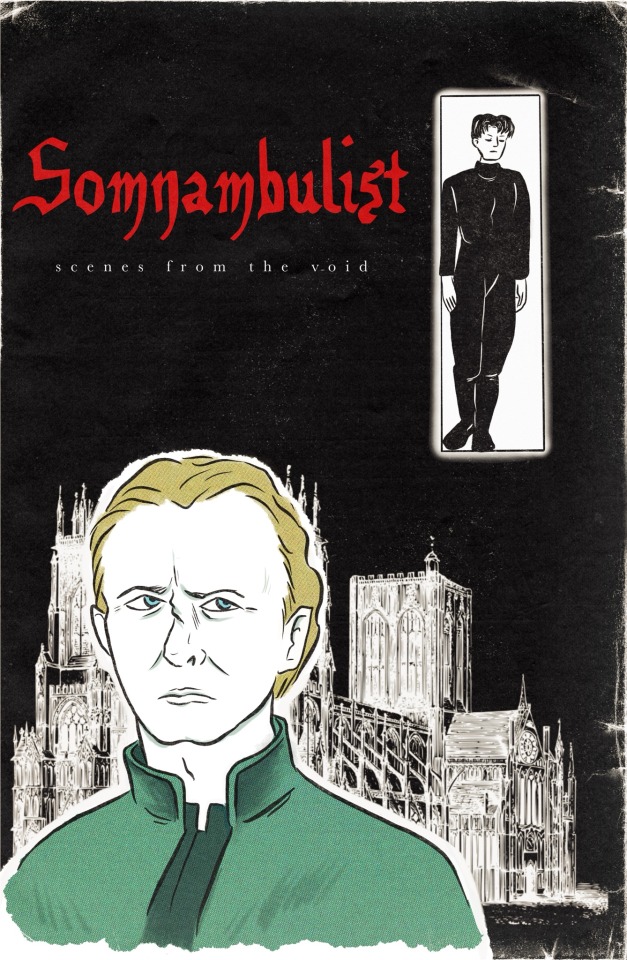
Somnambulist (AO3)
Papa Emeritus III x Necropolitus “ Nik” Cracoviensis II
18+ MDNI Dead Dove: Mind the Tags!
1988 This body, this body holding me…Be my reminder here that I am not alone… The newly appointed Bishop of Krakow, Necropolitus Cracoviensis II, is tasked to revitalize the destroyed archives of the Satanic Church of the Void. “Nik” comes across a mysterious young man from abroad, a brooding figure named Terzo. Nik soon learns that there’s more to this Terzo than his dark thoughts…
Dedicated to @osiris-iii-bc who inspired me to do all this. Reblog and comment, my friends.
Tags: Dead Dove, Dark Past, Family Secrets, Age Difference, Depression, Drug Use, 1980s, Art History, Watch me butcher Polish AND Italian! Other Additional Tags to Be Added
1988
Necropolitus Cracoviensis II, Bishop of Satanic Church of the Void in Kraków, was also known as Nik. Each member of the clergy had a chance to choose a new name once they had joined the ranks, an opportunity to leave their old life behind and build something new on their own terms. Nik chose Necropolitus Cracoviensis II because he wanted to frustrate his acquaintances. They considered him pompous anyway, so let them enjoy chewing on that name to save face. He then chose the shortened version “Nik” for his friends, because he wasn't a total dick.
Currently he was in the backseat of a car driving through Milan after an exhausting day in the airport. He was fighting a battle that had begun a few weeks ago when Sister Imperator herself requested he visit: a battle to be perfectly fluent in Italian in literally a week. He didn't plan on budgeting a week for the task; at a certain point he looked up over the mountains of new bishop obligations and realized he only had a week left.
Read the rest on AO3!
#papa emeritus iii#necropolitus cracoviensis ii#ghost band fanfic#my art#ghost fandom#ghost band fic#ghost band headcanons#seriously though I was bit by a fucking radioactive spider and immediately wrote this
59 notes
·
View notes
Text
youtube
The beautiful El cant de la Sibil·la (The Song of the Sibyl), a liturgical drama explained through song where a sibyl (prophetess in the Greco-Roman world) describes the end of the world.
It has been represented every year in the Christmas Night mass uninterruptedly since the Middle Ages in Mallorca and L'Alguer (always in the same lyrics in Medieval Catalan), despite the Catholic Church banning it for considering it a pagan ritual. As a result of this ban, the tradition was lost in Catalonia and the Valencian Country, but since the 19th century it has been revitalized and nowadays it's widely performed.
The whole song lasts for about 15 minutes, but Maria Arnal and Tarta Relena sing a 3-minute-long snippet here. This version was performed at a concert, so they're not wearing the lush clothes nor carrying the iconic sibyl's sword.
#arts#música#el cant de la sibil·la#tradicions#l'alguer#mallorca#illes balears#maria arnal i marcel bagés#tarta relena#music#gregorian chant#choir#choral#ancient#medieval#ethnography#christmas traditions#christmas#nadal
36 notes
·
View notes
Text
never underestimate a small act of kindness
If you ever feel a prompting to do something for someone, no nagger how small, please do it.
Awhile ago my ward had a pair of senior missionaries I love dearly, basically my God parents even though we don’t have those. I invited them to sit in on my patriarchal blessing and they took me to get endowed because I don’t have any family in the church and they are the closest thing to it.
As some of you know, I’m nonbinary, so it’s hard to be in the church sometimes. My ward is friendly, but I don’t have many true friends if that makes sense. These senior missionaries showed me so much sincere unconditional love and genuine interest in me as an individual.
They’ve since gone home, and I miss them everyday. I guess they were thinking about me, and they sent me a gift in the mail. And I’ll admit, I’m going through a horrible rough patch with my faith and it was exactly what I needed. They gave me a card, a sticker, and a book- the card and the book containing two heartfelt messages. I won’t reveal what they said for privacy’s sake, but I’ll say I was overwhelmed with the amount of love I received. It was exactly what I needed, and to be honest revitalized my faith in Jesus Christ. If you don’t know what the book is about, it’s a children’s book that basically talks about how peoples opinions of us (good or bad) don’t have to affect us when we know who we are and who our Father in Heaven is and His love for us.
This small act of kindness saved my life and my faith at one of the hardest periods of my life, and to them it was probably something simple and kind they wanted to do for someone they loved. To them it might’ve been nothing, to me it was everything.
This Christmas season I invite you to pray for God to reveal unto you who you can bless with a simple act of charity, ask Him to show you who is in need and ask to be His hands on earth. Because it might just be what saves someone’s life and/or faith and testimony. Be the light of Christ, share His hope.
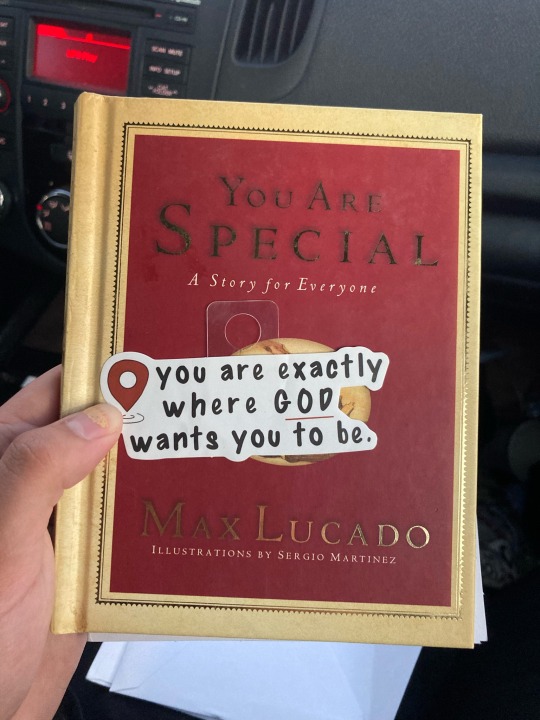
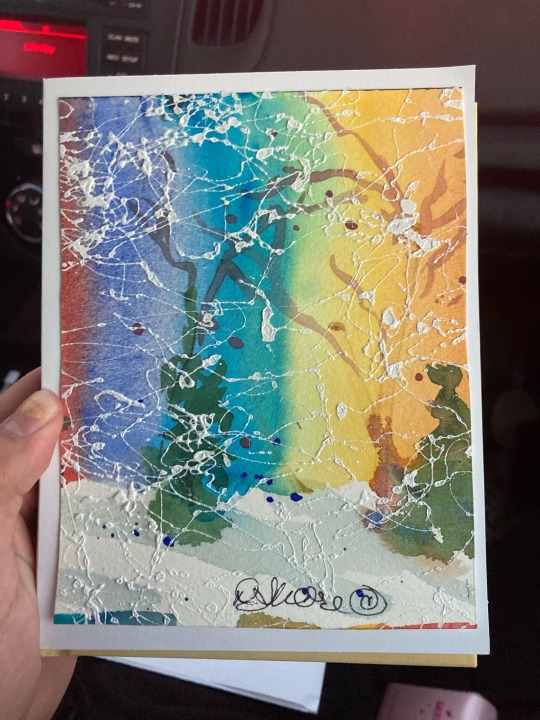
27 notes
·
View notes
Note
Been following for a while (even bought the pins; love ‘em!) and just wanted share a dead motel that I’d stumbled across recently. It appears to have closed sometime during the pandemic. Doubt that it gets resurrected, given the price of real estate in the area.
https://maps.app.goo.gl/e59tzRhc2LBGSKcW9?g_st=ic
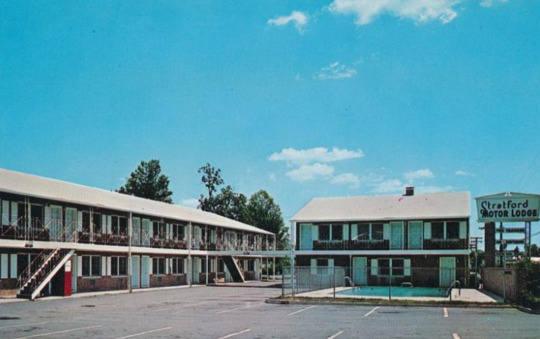
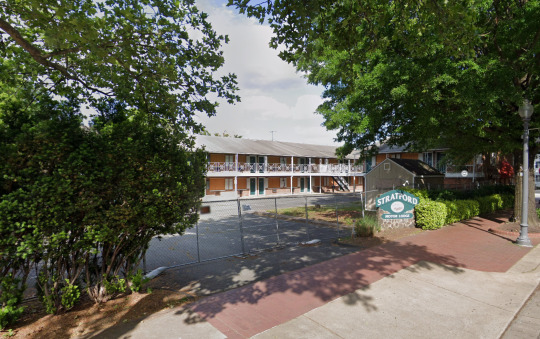
The Stratford Motor Lodge of Falls Church, Virginia closed in 2021. There have been multiple proposed development plans, including a senior living center or Wawa convenience store, but they all fell through. In September 2023, another application was filed with plans to revitalize a portion of the building into a restaurant.
71 notes
·
View notes
Text
Queenly's Astrology Observations & Film Analysis ♕✍︎🎬
PSA: 📌Don't Steal My Work!! Don't. Be. A. Dick, Don't plagiarize. You may share, like, & comment on this post. The rights to this astro content was created by and belongs to @queenlytheeastrobabe
Spoiler Alert‼️ Don't cross this line if you haven't seen the movie yet!
The Last Holiday🎄

Synopsis/Logline: Georgia Byrd is a conservative retail employee top of her department operating on autopilot, while unfulfilled in her career & life. She receives a terminal diagnosis after bumping her head and decides to take matters into her hands and start living her true purpose.
Location: Louisiana ⚜️
QL ( Queen Latifah)/Georgia Byrd has her Venus Line and Pluto Line on New Orleans.
Venus square MC: Her obligation to her family and career gets in the way of her romantic life and wanting to live in her soft girl era. She is a single career woman, who has a passion for culinary arts! ( Screams Mars & Saturn)
North Node Sextile MC: Her dream and life path of opening a restaurant, being a chef, and traveling the world begins here. However, she has to leave and rediscover her purpose to find that out.
Protagonist/MC: Georgia Byrd played by Queen Latifah who is a Pisces Sun/Martian dominant woman on a mission to fulfill her bucket-list before she dies.
Pushya Moon Nakshatra: cooking, nurturing, charity, devotion to god/spirit, connection to children, wise counsel & teacher. She was a parental figure to her young neighbor, Darius. She is an active member in her church choir and passionate about nurturing others with her food. She counseled Ms. Burns to make a career change and go back to school.

( Aries) Ashwini Saturn Nakshatra : Her fictional "terminal illness" known as Lampington disease displayed as a brain tumor affecting her hearing and eye sight. She was only given 3-4 weeks to live ( emergency, aggressive) supporting her swift action to travel to Europe for the Holiday. Head injuries & swift travel are associated with Aries/ Mars. This nakshatra is also associated with Ketu ( past life, past-times, detachment) and the color Blood Red, which she adorns when she travels to Europe. She also wore red choir robes at her church.

Location: Karlovy Vary, Czech Republic 🏂 🪂
Sun & Chiron Line Crossing:
Georgia took risks, sold her bonds, and finally invested in her well being. She reserved a luxurious suite at the GrandHotel Pupp in the Czech Republic as one of her possibilities. She gets a new wardrobe reflecting who she truly is on the inside and revitalized herself at the Hotel spa.
Georgia prevented Matthew Kragen from an attempted suicide and confronted Senator Dillings for his lack of support of their community.
She met Chef Didier and cooked with him.
She appeared on the cover of a Ski magazine after skiing the black diamond and went base jumping.
She won at poker betting on the number 17 3x because she had faith (8 is ruled by Saturn and represents the Star card in Tarot). She truly was the Star to everyone she met. She shone a light on what was hidden or needed to be addressed. Saturn rewards their children when they do their own work, embrace their challenges, and fight for injustice.
Doctor Gupta became a guru after he misdiagnosed Georgia and several other patients.
Ms. Burns went back to school and started a Spa management business.
Supporting Lead/Love Interest: Sean Matthews is played by LL Cool J who is a Capricorn Sun/Uttara Ashadha. Sean works in the same retail store as Georgia in the grill department and he shares mutual feelings for her. After reading Georgia's book of possibilities, he faces his fear of flying to confess his feelings and build a life together. He also was the only one that took the time to check in when Georgia went missing.


Georgia is a Pisces sun/Martian woman known to be powerful manifestors. Georgia made a "Book of Possibilities" / vision board of what she intended to accomplish in her life. Her business, the food she wanted to try, the chefs she wanted to meet, and her wedding. When she detached from her current reality and started existing as she wanted to be, her reality shifted. Everyone was attracted to her personality, her wisdom & truth.
She finally returned to New Orleans with a new purpose and opened her restaurant, Georgia's Place.
This movie has always been a fav of mine because the female lead is a sexy curvy black woman and her narrative ended beautifully. I may do a part II on other characters in the movie or maybe not 🤷🏿♀️....
Y'all can leave feedback on this observation of what y'all noticed or if you liked this series.
Happy Holidays Y'all 🎄❣️

Online Sources: https://www.rahasyavedicastrology.com/
#last holiday#queen latifah#ll cool j#astrology#astro observations#astro notes#film analysis#numerology#life path#loa tumblr#loassumption#law of detachment
13 notes
·
View notes
Text
another script/language post to go along with my samaritan and aramaic ones. this time, about the coptic language and script:
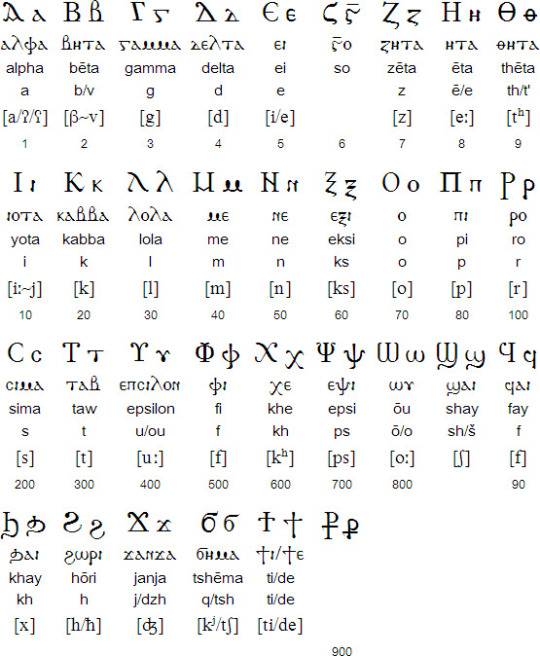
the coptic alphabet is mostly used to write the coptic language, the most recent development of the egyptian language (yes, the one that hieroglyphs were used to write). coptic along with previous iterations of the language belong to the egyptian branch of the afroasiatic family, of which they're the only members. once commonly spoken, coptic is mostly used as a liturgical language by coptic churches today, though copts have started revival movements. the church uses the bohairic dialect of coptic specifically, which has differences in pronunciation and grammar. modern revitalization efforts are also based in this dialect.
coptic has had a notable impact on general arabic and hebrew; for example, timsah - crocodile in arabic and one of the words for crocodile in hebrew (since palestine used to have crocodiles) - comes from coptic "emsah". it's also had a smaller impact on european languages via greek ("barge" and "skete" come from coptic). its biggest impact on a language is its significant impact on egyptian arabic.
the coptic script we have today developed between the 6th century bce and 2nd century ce, when greek was used to transcribe demotic texts. the script is a variation of the greek alphabet with all of its characteristic attributes (alphabet, written left-to-right, contains upper and lower case letters) with influences from demotic (written right-to-left, no cases) which were used to transcribe sounds/letters that aren't in greek (like Ϩ/ϩ, derived from demotic (which is not inscribed in unicode), which is "h"; greek has an "h" sound included in some letters but not just one letter for "h"). you can use coptic to write greek without any new letters to account for sounds, but lower-case coptic letters are just smaller versions of the upper-case ones with no modifications, so coptic and greek speakers may struggle to read the other's alphabet.
like greek, coptic also has its own numerals made from letters. (ⲁ = 1, ⲃ = 2, ⲓ = 10, ⲣ = 100, etc). also like greek, a line is drawn above them to distinguish them from the regular text. a formatted version of this numeral system influenced by arabic was used by egyptians of all religions along with the standard arabic one (and the hebrew one by jews) for a long time.
sample text (article 1 of the universal declaration of human rights in bohairic coptic):
Ⲉ̀ⲫ̀ⲟⲩⲁⲓ ⲥⲉⲙⲓⲥⲓ ⲣⲉⲙϩⲉⲩ ⲛⲉⲙ ⲉⲧϣⲱϣ ⲉ̀ ⲁⲝⲓⲁ ⲛⲉⲙ ⲇⲓⲕⲁⲓⲟⲥⲩⲛⲏ. Ⲛ̀ⲑⲱⲟⲩ ⲥⲉⲉⲣϩ̀ⲙⲟⲧ ⲅⲛⲱⲙⲏ ⲛⲉⲙ ⲥⲩⲛⲏⲇⲏⲥⲓⲥ ⲟⲩⲟϩ ⲙ̀ⲡⲉⲛⲑⲣⲉⲩⲁⲣϣⲏⲧ ⲙ̀ⲙⲉⲧⲣⲱⲙⲓ ϩⲓⲛⲁ ⲛ̀ⲑⲱⲟⲩ ⲙ̀ⲫ̀ⲣⲏϯ ⲛ̀ⲥ̀ⲛⲏⲟⲩ.
transliteration:
Ephouai semisi remheu nem etshōsh e axia nem dikaiosunē. Enthōou se’erehmot gnōmē nem sunēdēsis ouoh empenthreuarshēt em’metrōmi hina enthōou emephrēti enesnēou.
english:
All human beings are born free and equal in dignity and rights. They are endowed with reason and conscience and should act towards one another in a spirit of brotherhood.
a formatted version of coptic script is also sometimes used to write some nubian languages (which are not afroasiatic) like nobiin. the script includes influence from the meroitic script, itself a development of demotic. (one is the letter ⳣ, "w", which comes from this letter.) usage of the coptic script for these languages was more common historically to write old nubian. most nubian languages use arabic or latin scripts today.
the nubian script adapted for nobiin:
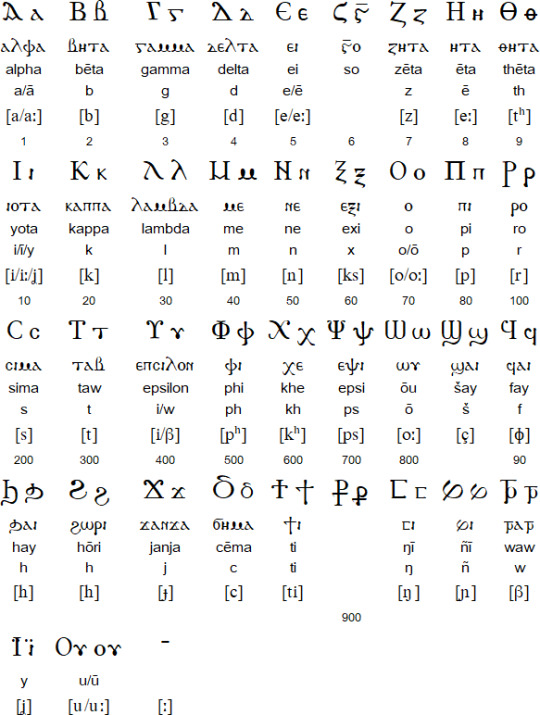
sample text (john 11:41 in old nubian):
ⲕⲧ̅ⲕⲁ ⲅⲉⲗⲅⲟ̅ⲥⲛ ⲓ̈ⲏ̅ⲥⲟⲩⲥⲓ ⲛⲁⳡⲁⲛ ⲧⲣⲓⲕⲁ, ⲇⲟⲗⲗⲉ ⲡⲟⲗⲅⲁⲣⲁ ⲡⲉⲥⲥⲛⲁ: ⲡⲁⲡⲟ, ⲥ̅ⲕⲟⲉⲗⲙ̅ⲙⲉ ⲉⲕ̅ⲕⲁ.
transliteration:
Ephouai semisi remheu nem etshōsh e axia nem dikaiosunē. Enthōou se’erehmot gnōmē nem sunēdēsis ouoh empenthreuarshēt em’metrōmi hina enthōou emephrēti enesnēou.
some coptic-learning links:
copticforall.com
coptic.net pdf
so, you want to learn coptic? (about boharic coptic)
r12a - resources on how different scripts in all languages work, good resource for languages/scripts in general.
the youtube channel ilovelanguages also has a few videos on coptic, you can find the playlist here.
33 notes
·
View notes
Text
Echos of Solitude






























The months that ensued after Cordelia's return showed promising signs. The King frequently joined her on walks, finding solace in the altered landscapes that aided her recovery. King Edward transcended his role as a mere sovereign; he evolved into a beacon of hope. His benevolence and generosity starkly contrasted with his father's legacy. Edward's court was a realm open to all, where nobles and peasants found equal footing. He earned the title of "The White King," deeply revered and cherished by his people.
King Edward was also renowned for his extreme piety and unwavering devotion to the Jacoban Church, a faith deeply instilled in him by his mother, Queen Cordelia. His faith permeated every aspect of his rule, beginning each day with hours of prayer and attending Mass daily. After banishing the previous clergy involved in the conspiracy against his mother, Edward sought to restore the church's integrity. He replaced them with devout and learned men, instituted rigorous training and educational programs, and founded seminaries to ensure a well-rounded and ethical clergy. He also reformed church finances, promoting transparency and accountability. Through these measures, Edward revitalized the Jacoban clergy, restoring its sanctity and earning respect and faith from the people of Windenburg.
While residing in Windenburg, Margaery and her daughter, Empress Mary, deliberated on a potential union for Mary's son, Prince Fernando of Tartosa. After thorough consideration, they concluded that Princess Augusta would be an ideal match. At 21 years old, Princess Augusta was prepared for marriage and welcomed the proposal with joy. Subsequently, they presented their decision to the king for approval.
King Edward sat in his office, deeply engrossed in state affairs, when Queen Margaery, Princess Augusta, and Empress Mary of Tartosa entered the room. Edward looked up, a faint smile gracing his features as he acknowledged their presence.
"Good day, Your Majesty," Mary greeted with a respectful nod, her demeanor poised and regal.
Edward returned the greeting with a nod, "What brings you all to my chambers today?" he inquired, curious about their unexpected visit.
Margaery spoke first, her voice gentle yet firm. "My dear grandson, we have come to discuss an important matter regarding Princess Augusta."
Edward's interest piqued, and he turned his attention towards Augusta, awaiting her words.
"Brother," Augusta began, her tone earnest, "Empress Mary has expressed an interest in a potential alliance between our kingdoms through a marriage proposal."
Edward's brows furrowed slightly, processing the information. "I see," he responded thoughtfully. "And who is the intended groom for such an alliance?"
Empress Mary spoke up, her voice carrying a sense of diplomacy. "Your Majesty, I humbly request the honor of Princess Augusta's hand in marriage for my son, Prince Fernando of Tartosa."
Edward nodded, acknowledging the strategic advantages of such an alliance. "I appreciate your candor, Empress Mary," he said. "However, my sister's happiness and well-being are paramount. Augusta, how do you feel about this proposal?"
Augusta smiled warmly, her eyes reflecting a mix of excitement and gratitude. "I would be honored to ," she replied, stepping forward to embrace her brother in a heartfelt hug.
Edward returned the embrace, a proud smile gracing his features. "You will make a fine empress one day," he remarked, his tone filled with confidence and affection. "I look forward to working alongside you throughout my reign, sister."
Windenburg appeared to be finding its footing, yet the saying held true: where light shone, shadows lurked close behind.
In the autumn of 1354, King Edward presided over court at Windenburg Castle. Among those who approached him was the Countess of Westfield, Lady Dorthea, who performed a graceful curtsy as she addressed him.
"Your Majesty," she began with a tremble in her voice, "I implore you to release my son Richard from his confinement. He has suffered greatly, and my heart longs for his freedom."
Edward's gaze softened with understanding, though his tone remained firm. "Lady Dorthea, I cannot grant that request. I have already extended great mercy to Lord Richard by sparing his life."
Dorthea persisted, her desperation evident. "Since Princess Corrine and my grandchildren left Westfield, Richard has been my sole comfort. Please, Your Majesty, allow me to see my son."
Edward's reply was gentle but resolute. "Richard is currently confined, and I cannot permit any visitors at this time."
Overcome by emotion, Lady Dorthea dropped to her knees, her voice filled with anguish. "Please, Your Majesty, just a moment with him. I beg of you."
Edward rose from his throne, his hand resting reassuringly on her shoulder. "We will discuss this matter further at a later time, Lady Dorthea. Rest assured that your pleas have been heard."
With a heavy heart, Lady Dorthea rose solemnly and left the throne room abruptly. Edward watched her departure with a mixture of concern and empathy, understanding the depth of a mother's love and the weight of his responsibilities as a ruler.
As the golden hues of dawn painted the horizon over Westfield Manor, one of Lady Dorthea's devoted servants approached her bedroom door, a sense of duty driving her actions. She knocked softly, awaiting permission to enter. Minutes ticked by in unnerving silence, and the servant's concern grew with each passing second.
With a heavy heart and a growing sense of dread, the servant cautiously pushed open the door. What greeted her shattered the tranquility of the morning. Lady Dorthea's lifeless form hung from a makeshift noose, she had taken her own life.
The servant's screams echoed through the room, mingling with the sound of her pounding heart.
The evening sun cast a warm glow through the stained glass windows of Windenburg Castle's chapel as the royal family attended their nightly prayers. Among the solemn hymns and flickering candlelight, Sir Walter Arnold, The King's hand and Dorthea's cousin, quietly entered and made his way towards King Edward with a heavy heart.
"Your Majesty," Sir Walter's voice trembled with sadness as he approached the king. "I bear grave news. Lady Dorthea… she has passed."
Edward's expression shifted from serene contemplation to one of shock and devastation. "What? How can this be?" His disbelief was palpable, having just spoken with Dorthea the day before.
As the weight of the news settled upon them, the men exited the chapel to address the sudden tragedy. Margaery, Edward's grandmother, followed with a troubled expression, hoping against hope that she had misheard. "What is it, Walter? Please tell me it's not true," she pleaded, her voice trembling.
Sir Walter's solemn nod confirmed the heartbreaking truth. "I'm afraid it is, Your Grace. Lady Dorthea has taken her own life."
Margaery's grief poured forth in tears, her hands covering her mouth in shock. "Oh, Dorthea… my dearest friend," she whispered between sobs, her heart heavy with sorrow at the loss of a cherished companion.
#simsmedieval#royalsims#windenburg#sims4#royal#sims#gameofthrones#thesimsmedieval#royalty#simsstory#sim#historical sims#royalty sims#sim legacy#ts4 simblr#sims 4#simblr#sims 4 gameplay#my sims#sims 4 screenshots#ts4 download#ts4 cc#gshade#ts4 dl#ts4 story#ts4 gameplay#ts4#ts4 legacy#ts4 screenshots#the sims 4
38 notes
·
View notes
Text
Lazy Christians Don’t Exist (Sermon Excerpt)
This extended excerpt from ” Lazy Christians Don’t Exist” contains the most frequently extracted quote from one of my nearly 2,000 sermons. I hope it blesses you in the arduous task of improving a broken congregation. Of all the practical wisdom to discover in the desire to be a successful Follower of the Way of Christ involves a deep understanding regarding the first and most important lesson…
#Bible#Christian Education#Christianity#Church Growth#Discipleship#God#Jesus#Leadership#Pastoral Training#Rev. Ed Schneider#Revitalization#training#Transformation
0 notes
Text
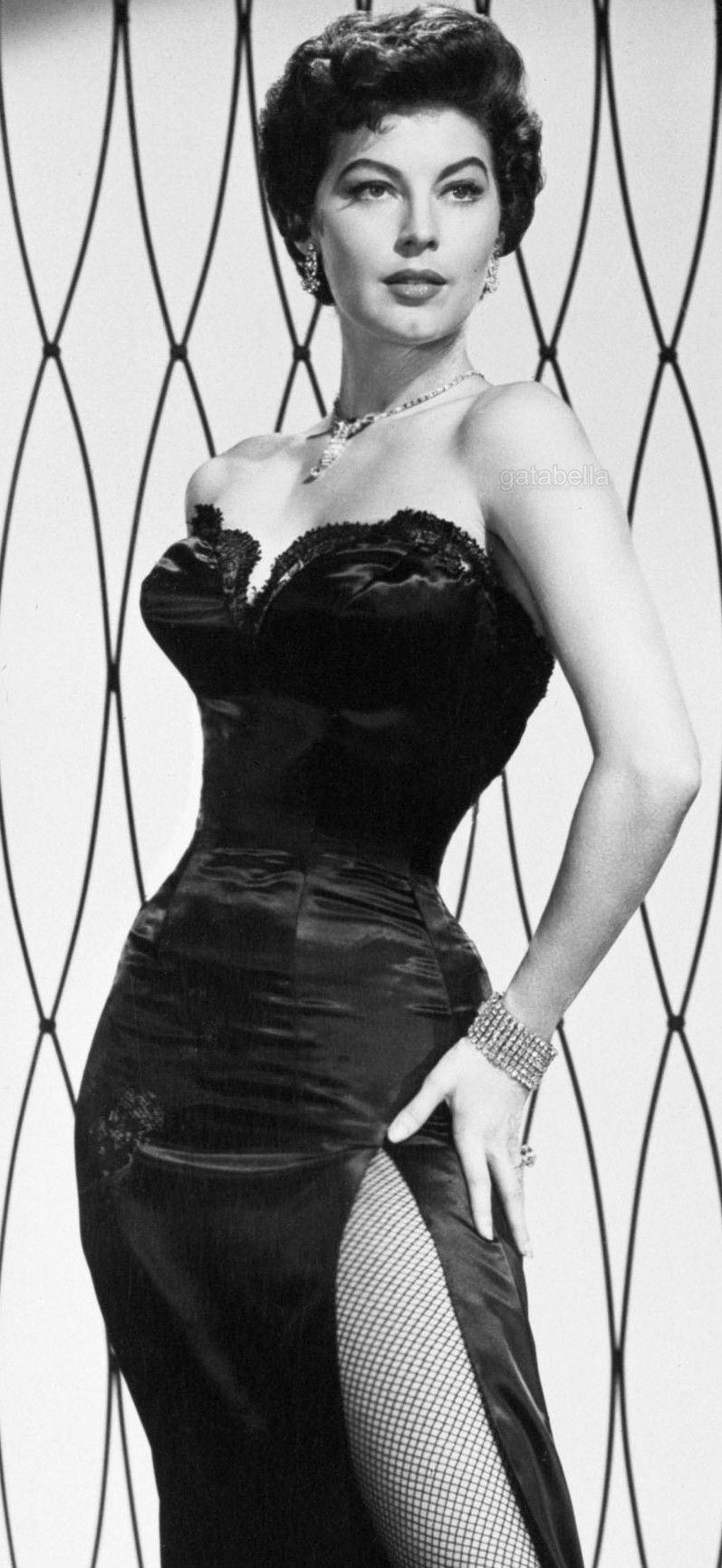
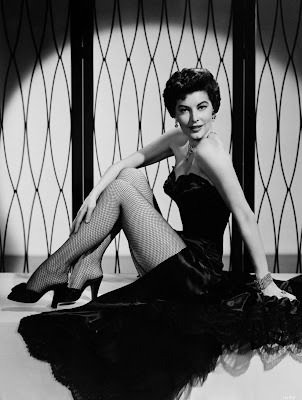
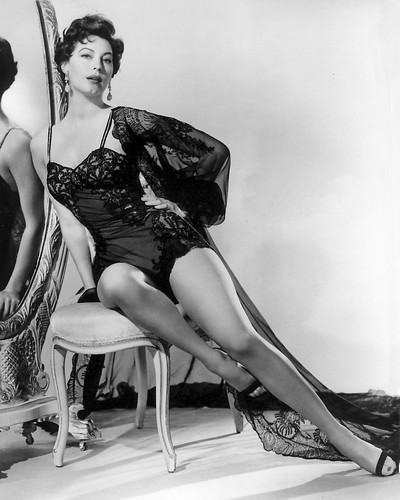
Soon after Gardner arrived in Los Angeles, she met fellow MGM contract player Mickey Rooney; they married on January 10, 1942. The ceremony was held in the remote town of Ballard, California because MGM studio head Louis B. Mayer was worried that fans would desert Rooney's Andy Hardy movie series if it became known that their star was married. Gardner divorced Rooney in 1943, citing mental cruelty; privately blaming his gambling and womanizing, she didn't ruin his on-screen image as the clean-cut, judge's son Andy Hardy that the public adored.
Gardner's second marriage was equally brief, to jazz musician and bandleader Artie Shaw, from 1945 to 1946. Shaw previously had been married to Lana Turner. Gardner's third and last marriage was to singer and actor Frank Sinatra from 1951 to 1957. She later said in her autobiography that he was the love of her life. Sinatra left his wife Nancy for Gardner, and their marriage made headlines.
Sinatra was blasted by gossip columnists Hedda Hopper and Louella Parsons, the Hollywood establishment, the Catholic Church, and by his fans for leaving his wife. Gardner used her considerable influence, particularly with Harry Cohn, to get Sinatra cast in his Oscar-winning role in From Here to Eternity (1953). This role and the award revitalized both Sinatra's acting and singing careers.
The Gardner-Sinatra marriage was tumultuous. Gardner confided to Artie Shaw, her second husband, that, "With him [Frank], it's impossible...It's like being with a woman. He's so gentle. It's as though he thinks I'll break, as though I'm a piece of Dresden china, and he's gonna hurt me." During their marriage, Gardner became pregnant twice, but aborted both pregnancies. "MGM had all sorts of penalty clauses about their stars having babies", according to her autobiography, which was published eight months after her death. Gardner filed for divorce in 1954, and the divorce was finalized in 1957. Following their divorce, Gardner and Sinatra remained good friends for the rest of her life. Of the support Sinatra gave Gardner, Ian McKellen commented that "If you have been married to Frank Sinatra, you don't need an agent".
41 notes
·
View notes
Text
i may be making a new tumblr soon for security purposes. if you wish to know it and be moots message me or i will just follow you from there whence it occurs.
im sitting at the grocery store drinking cardboard container alkaline spring water, just ate two organic bananas.
diary entry from the walk earlier:
walking my street in the cold. my phone screen is weird and i need to get a new phone.
there are trees, a forest to my left with an animal you can hear scurryin around. on my right are houses and loud birdsong.
im a lil worried my boyfriend will hack and fuq up my account cus he threatened to.
im currently wearing baggy darkish grey sweatpants, black "lamb" brand boots, yellow crop top w coquette ribbon, black sweater ~v neck~ and a pink grandma cardigan my boyfriend bought me. also, cat eared off-white winter hat my boyfriend got me for christmas. along with these items are my darkbrown old navy scarf from boyfriend and grey scarf pictured in my last outside photos. my fingers are going a bit numb on my left hand. forgot to mention! i wearing fluffy warm outdoor vest from momma.
currently made it to the path between cars and houses, a small forest separating them. not even halfway to destination but im on my way. !!!ooh forgot i'm wearing a knitted black and dark green (laughter cus im a dork explaining this all to y'all) neck warmer. i'm still cold. ....once when i was a wild anorexic teen on laxatives i took a poo behind the wooden gate on this path. bad wild girl i eww was but i couldn't hold it in.
now~ ive made it to the main road that connects to the skate park i'll be cutting through. i daresay this walk *seems* more delightful than the one to my gym. but all early walks on saturday and sundays are delightful because there's less frequency of cars. i decided to go with the crowds advice and my own will or gods will to leave my boyfriend's last night via uber. he actually hugged me atleast and it feels real this time. i cried in the uber aannnnd upon arriving home at my parents.(and a lil bit this morning) don't know if i will cry hard today but surely it will come eventually maybe.
i spoke with him through text told him i really do love him and being with him was the best part of my life. i didn't mention that it was probably also the one of the most dangerous parts of my life.
out of anger he made many threats i'm going to tell myself he didn't mean.
ahoy! i am walking through the skate park dog park playground creek area. jeez im thirsty for water. next stop~ a long staircase surrounded by woods. it goes up to my ex boyfriends mom's house street. which ,after walking that street i meet the main road which after one turn i am one walk away from my destination. did i tell you my destination?
wking up the stairs omfg i haven't got this much revitalizing exercise for my lungs and heart in a while. i'm out of breath. i think i forgot my exes mom's house but i do remember him consistently being critical of me. Jesus Christ. i think i'm passing it now dear heavens. (laughter).
if my boyfriend doesn't choose to continue contact w me then i fear these journal entries may be a bore if not a nuisance. i'm going to keep writing anyway. i want new phone so i can use internet and do "photography".
slowly warming up here. the sun coming up so intoxicating in its beauty. im less than five minutes from main road where i must cross the street.
i love my boyfriend. it feels heavy to type such a thing. he can be very aggressive and only allows levity in the deep dark crevices of my soul when he's being abusive, tender and gentle or sweet, or if it's on his terms and he being goofy.
crossing the bridge now with the highway beneath. dis place is trump town baby. i remember the gate on this bridge having the large words trump in red the first time he had been elected. about to turn on the street leading to my destination. there's a catholic cemetery and church (mom attends church there w polish neighbor maria) i spy a milky white statue of Jesus and the sun beams down on the concrete. my lips are cold, my nose sniffling~ i can do this im almost there! church bells ringing. im right next to an evergreen and, two birds flapped out of it chirping!
10 notes
·
View notes